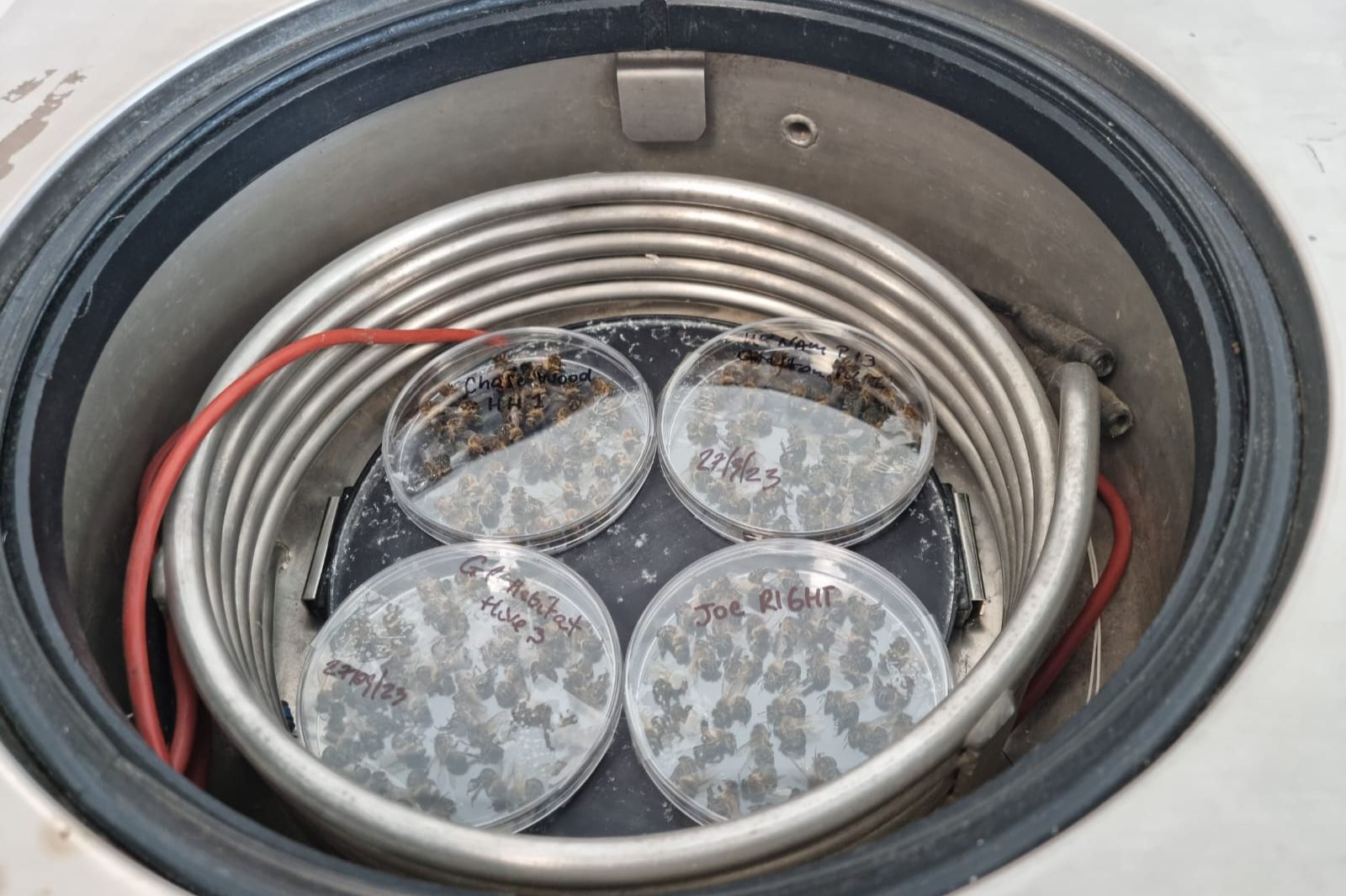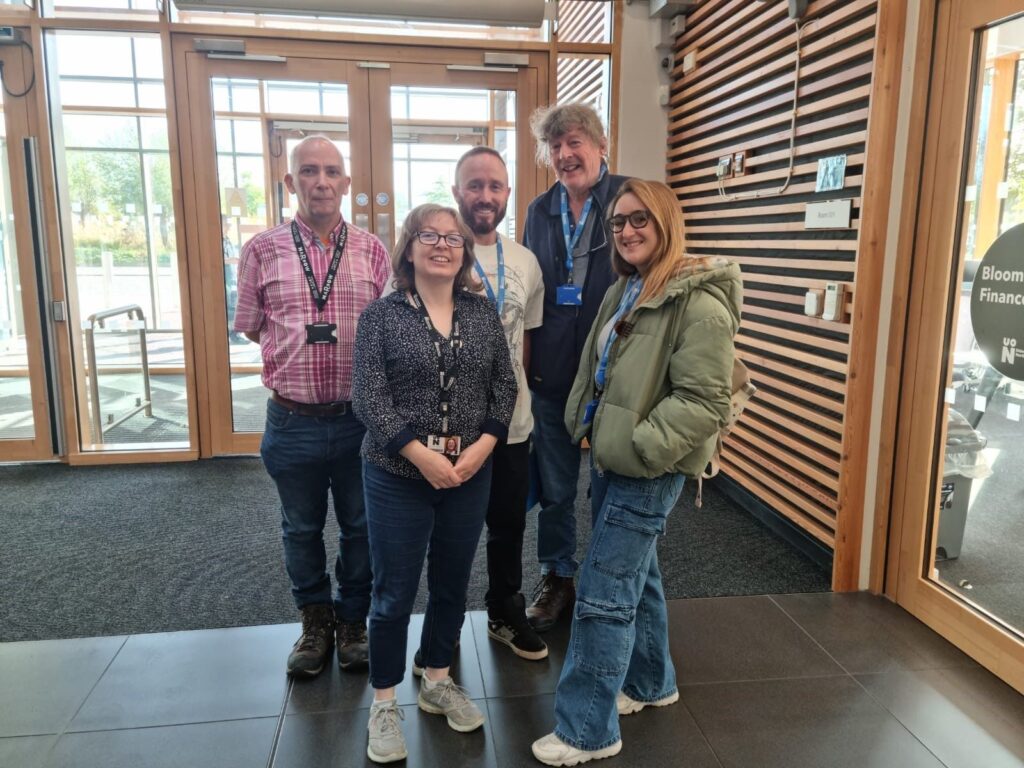Bees from the trees go into deep freeze thanks to UON
Date 9.10.2023
9.10.2023
The University’s (UON) Science department opened its doors and warmly welcomed a research team needing urgent, cold storage equipment and expertise.
Researchers from the University of Galway came to Northampton recently, studying wild honey bee populations.
Wild honey bees are rare but – like other species of bees and other pollinators – are vitally important as they help produce the next generation of plants, including the fruit and crops we eat. The team are comparing the DNA of wild bees to conventionally managed bees that are kept in hives.
After collecting samples of bees from Boughton Estate Forests, they needed support with freezing the samples as quickly as possible to avoid any deterioration of the bees’ DNA so the samples could be safely transported back to Galway for testing. Which is where University of Northampton came in.

Dr Alexandra Woodacre, Senior Lecturer in Molecular Bioscience (pictured above, front left of the photo), was part of the UON team who were buzzing with delight to lend a helping hand on the day. She explains what she and her colleagues did: “Bees play such a key role in shaping our natural environment and contributing to food security and this project is really exciting and should find out how diverse honey bees really are.
“We were more than happy to support Galway’s exciting research and provided lab facilities and technical expertise to process the samples by freeze drying and then storing them so they can be transported back to Galway for further analysis. Colleagues Joe Bauwens and Stefan Davis will monitor the samples for the next week or so as the process takes longer than you might think.
“I look forward to supporting them when they come to Northamptonshire again to survey the bees and have already invited Chiara Binetti from the Galway Honey Bee Research Centre to give a talk to our Molecular Bioscience Research Group!”
Chiara (pictured next to Dr Woodacre) adds: “There’s much to be learned from wild-living colonies of honey bees. Survival under natural selection and adaptation of free-living bees in old UK forests is currently being investigated, thanks to collaboration between beekeepers and scientists – this might be the key to unlocking their secrets and potential, and possibly inform more sustainable bee keeping.
“We are indebted to the people in the local honey bee group who identified the wild colonies, helped to sample them, and also wish to acknowledge the valued assistance of Dr Alexandra Woodacre and her colleagues in supporting us by preserving our samples until further examination.”